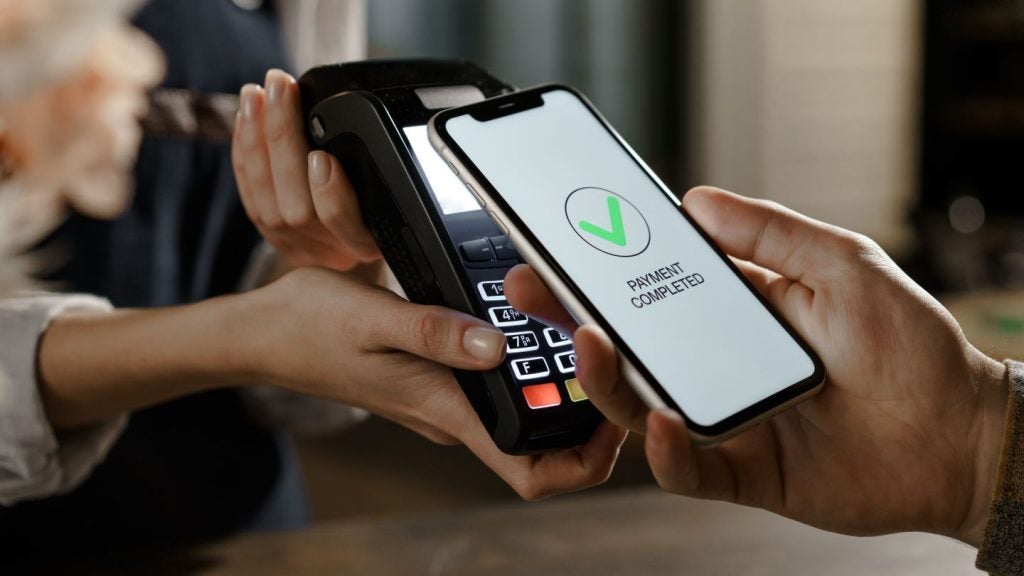Key strengths of BMO Bank of Montreal’s credit card business include its relationship with Air Miles and its ownership of the Diners Club North America portfolio. Robin Arnfield reports on one of the world’s most successful loyalty programmes
BMO, Canada’s fourth largest bank, is alone among the top five Canadian banks in only issuing MasterCard-branded credit cards. The other big banks, CIBC, RBC Royal Bank of Canada, Scotiabank, TD Canada Trust, and CIBC, all issue Visa cards, although TD, RBC, and CIBC also offer MasterCards.

Access deeper industry intelligence
Experience unmatched clarity with a single platform that combines unique data, AI, and human expertise.
According to Christie Christelis, president of Canadian consultancy Technology Strategies International, BMO and MBNA are the two largest MasterCard issuers in Canada. "They’re neck and neck in terms of MasterCard market leadership," he says. TD acquired MBNA’s Canadian credit card portfolio in December 2011.
"The average BMO credit cardholder’s card spending is lower than the average Canadian Visa cardholder’s spending," says Christelis. "Canadian MasterCard cardholders generally spend less than Canadian Visa cardholders, partly due to the influence of BMO credit cardholders."
"BMO credit cardholders tend to have lower credit limits than other Canadian banks’ cardholders, and to pay off their credit card bills," confirms Justin Fuller, director, financial institutions at Fitch Ratings.
"BMO leans more to the repayment-/transaction-centric model than the revolving debt model for its credit cards," says Christelis. "This contrasts with CIBC, which encourages its cardholders to revolve their debt. For example, if CIBC credit cardholders approach their credit limit, CIBC will offer to raise it."

US Tariffs are shifting - will you react or anticipate?
Don’t let policy changes catch you off guard. Stay proactive with real-time data and expert analysis.
By GlobalDataAccording to Fuller, not all BMO’s consumer credit cardholders have chequeing accounts with the bank. "BMO’s strategy is to cross-sell additional products to its credit cardholders, such as chequeing accounts, as it’s looking to get a greater share of its cardholders’ wallets," he says.
"BMO has a very competitive Canadian credit card program," says Madeline Aufseeser, a senior analyst at Aite Group. "For example, the fees it charges on its annual-fee credit cards aren’t out of line with what the other major Canadian credit card issuers are doing."
Advertising
According to a Kantar Media report on Canadian financial services digital advertising, BMO came fourth among Canadian financial services firms in 2012 in terms of Internet advertising, behind TD, Capital One, and Amex. BMO increased its overall digital advertising spending from C$2.25m in 2011 to C$11.67m in 2012.
Although BMO was not among the top five digital advertisers in 2012 for consumer banking services, it came fifth in terms of digital advertising for credit cards in 2012, Kantar says.
BMO increased its spending on credit card digital advertising from C$121,000 in 2011 to C$2.08m in 2012. Amex spent C$13.06m in 2012, followed by Capital One with C$9.3m, TD with C$6.84m, and RBC with C$2.11m.
Total Canadian credit card digital advertising spending rose to C$41.5m in 2012 from C$28.6m in 2011.
Receivables
BMO had C$7.68bn ($7.62bn) in total consumer credit card receivables at 31 January 2013, including around C$500m in credit card loans at its US subsidiary BMO Harris Bank. This was down from C$7.81bn at 30 October 2012 and C$7.87bn at 31 January 2012.
BMO generated C$177m in card fees in its fiscal first quarter 2013 ending 31 January 2013, down from C$181m in its fourth quarter 2012 and C$167m in its first quarter 2012.
BMO’s Master Credit Card Trust II consisted of C$7.33bn billion in securitised consumer receivables in December 2012. "Because of its size, the Master Credit Card Trust II provides a good indicator for the performance of BMO’s overall consumer credit card portfolio," says Michael Buzanis, Toronto-based vice president and senior credit officer at Moody’s Investor Service.
"In December 2012, the Trust’s gross charge-off rate was 3.93%, down from 4.35% in September 2012," Buzanis says. "The Trust’s gross portfolio yield in December 2012 was 23.64% which includes fees, interchange and interest. In September 2012, the yield was 23.31%.
The Trust’s principle payment rate, which indicates debt repayment as a percentage of the total outstanding balance, was 40.01% in December 2012. "This indicates that many BMO credit cardholders are using their cards more for convenience and to earn rewards than for borrowing, demonstrating the importance of rewards programs," says Buzanis. "In the US, the typical payment rate would be around 22%, as Americans tend to use their credit cards more as a borrowing product."
The Trust’s total (30 plus days past due) delinquency rate in December 2012 was 3.29%, up from 3.15% in September 2012.
"BMO’s Canadian credit card portfolio has performed pretty well," says Fuller. "It has had some delinquencies, but this is normal for the Canadian credit card market right now, when there are concerns about elevated consumer debt."
Moody’s Canadian Credit Card Index, which measures the credit performance of around 80% of all outstanding securitised and non-securitised Visa and MasterCard receivables in Canada, had a gross charge-off rate of 3.24% at 30 September 2012. The index had a total (30 plus days past due) delinquency rate of 2.19% at 30 September 2012.
"Like the other top Canadian credit card issuers, BMO’s credit card portfolio is dominated by highly seasoned account-holders, who have had BMO credit cards for a long time," says Buzanis. "Seasoned accounts normally have lower credit losses than newer accounts, and their performance tends to be more stable and predictable."
As at 31 August 2012, 77.51% of the accounts in the Trust were at least five years old, according to Moody’s.
"The Canadian credit card market has been relatively flat in terms of balance growth in the last few years," says Buzanis. "The large Canadian credit card issuers are pretty similar in terms of the performance of their credit card portfolios. The main way Canadian issuers grow their credit cards portfolios is via acquisitions, When TD bought the MBNA Canada portfolio, it doubled its credit card business overnight."
Air Miles
BMO’s Air Miles credit cards are the flagship of the bank’s rewards programmes, which also include cashback cards and general-purpose BMO Rewards MasterCards. "BMO’s Air Miles credit cards are very popular in Canada as rewards cards," says Buzanis. "The Air Miles cards are BMO’s most popular credit cards," notes Aufseeser.
BMO offers its Canadian consumer cardholders two Air Miles credit cards: the BMO Air Miles MasterCard, which has no annual fee, and the BMO Air Miles World MasterCard, which has a C$99 annual fee and a higher reward rate than the standard Air Miles card.
BMO has been an Air Miles partner since 1992, and renewed its agreement with LoyaltyOne, owner of the Air Miles loyalty scheme, in January 2013. BMO has the exclusive right among Canadian banks to issue Air Miles cards. "Although Amex Canada offers Air Miles credit cards, these cater to a very different demographic than BMO’s Air Miles cards," says Christelis.
"BMO’s Air Miles cards don’t place any restrictions on which airlines cardholders can use their miles to buy tickets from," says Alfred DuPuy, managing director of branding consultancy Interbrand’s Toronto operation. This contrasts with CIBC’s Aerogold Visa credit cards, which offer Aeroplan points, a rival scheme to Air Miles. Aeroplan points can only be redeemed at Air Canada and its 26 Star Alliance partner airlines.
"Air Miles has done a good job of developing its partner network in Canada," says DuPuy. "Its policy is to pick partners such as BMO, Shell, Staples, and Safeway Canada that have good market shares and are prepared to be proactive in promoting Air Miles."
DuPuy says that BMO is trying to work out how to more deeply embed its Air Miles cards with its customers. "In August 2012, BMO expanded its Air Miles offering by launching the Air Miles bank plan," he says. This is a bank account that enables BMO customers to earn Air Miles for every C$30 spent on their BMO debit card. By maintaining a C$3,000 minimum monthly balance in the account and by holding a BMO Air Miles MasterCard, they also earn bonus Air Miles.
Affinity and co-branded cards
MBNA is the largest issuer of affinity credit cards in Canada, with around 600 sub-issuers of its cards, according to Christelis. However, BMO is also a leading Canadian affinity card issuer in Canada, says a Mintel report on the Canadian credit card market. It sponsors credit cards for charities such as the Canadian Red Cross, professional organisations, university alumni associations, the Canadian Hockey League, Major League Soccer teams, and trade unions, for example.
In 2010, BMO became the first Canadian bank to launch an affinity credit card for professional immigrants from China, offering a choice of Air Miles or cashback. The card, which is issued with the Chinese Professionals Association of Canada, is designed to provide newly-arrived Chinese professionals with rapid access to credit.
"BMO offers co-branded credit cards with Canadian supermarket chain Sobeys and Shell Canada," says Steve Pedersen, BMO’s vice president of corporate payment products for Canada and corporate cards for North America.
The Shell-BMO MasterCards offer a choice of Air Miles or cashback. BMO and Sobeys provide the No Fee BMO Club Sobeys MasterCard, which pays Club Sobeys reward points, and the No Fee BMO Sobeys Air Miles MasterCard.
In October 2011, BMO launched a co-branded no-fee bank account with Sobeys, which offers customers the opportunity to earn Air Miles in exchange for setting up automatic bill payments and deposits within 90 days of opening the account.
BMO’s corporate cards business doesn’t have co-branding partnerships with retailers. "A number of BMO’s corporate clients co-brand their corporate logo on their BMO corporate cards as a way of reinforcing their corporate identity," says Pedersen.
Corporate cards
"From a product point of view, our Canadian and US corporate and commercial cards are centralised," says Pedersen. "However, we’ve decentralised the sales teams for our corporate and commercial cards, so we can address the geographical differences between the US and Canadian markets."
"We are focused on firms with revenues of at least C$5m a year which require a minimum credit limit of around C$50,000," says Pedersen. "However, some of our clients have smaller revenues than C$5m , but need corporate cards from BMO."
For clients who don’t require the level of control offered by BMO’s specialised corporate cards, BMO offers the general-purpose One corporate card. "The One card provides data feeds, but has a lower level of reporting compared to our fleet, procurement, and T&E cards," says Pedersen.
In January 2010, BMO bought the Diners Club North America card portfolio from Citi. "Diners represents 40-45% of BMO’s North American corporate card business," says Pedersen. All BMO-issued Diners cards use the MasterCard network.
"We bought the Diners portfolio as it was a stronger T&E product than the T&E offering we already had in the market," says Pedersen. "Prior to the acquisition, BMO was seen as a purchasing card provider as opposed to a T&E card provider. We were traditionally stronger in purchasing cards, fleet cards, and our One cards rather than in T&E cards."
In April 2013, BMO won a contract to supply corporate T&E credit cards to the Canadian government along with its partner Hogg Robinson Group. BMO and HRG replace the previous supplier of the Government’s T&E cards, Amex and its partners Concur and Accenture.
"Hogg Robinson is providing the travel management service and we’re providing the cards," says Pedersen. "We have had a long relationship with the Canadian government, as we are its primary supplier of procurement cards."
The contract, which will run until April 2022, will entail rolling out around 100,000 BMO-issued Travel MasterCard cards to over 100 Canadian government departments and agencies by April 2014.
"Our Diners portfolio was a great help in our winning the government T&E contract, as it gave us credibility in T&E cards," says Pedersen.
Another benefit for BMO of buying the Diners portfolio was the ability to issue Diners cards in other countries. "By buying Diners Club North America, we were able to expand our international card issuance," says Pedersen. "We can arrange for our North American clients to receive Diners cards in other parts of the world through our relationships with other Diners issuers. These arrangements are reciprocal, as Diners customers in other countries are able to get BMO-issued Canadian and US Diners cards."
BMO provides consolidated reporting to its North American Diners clients, which enables them to view their Diners cards issued in other countries by BMO’s Diners partners, says Pedersen.
Portals
BMO is in the process of integrating its Diners platform with its corporate cards platform, so that clients will have a single portal for viewing Diners and BMO cards. "We’ve integrated the sales forces for our Diners cards and our BMO corporate cards, and will complete the platform integration over the next year," says Pedersen.
BMO currently has two portals for corporate clients to view their cards. One is for Diners Club, and the other is for the non-Diners BMO corporate cards.
"Our strategy for the last three years has been to provide our clients with an integrated view," says Pedersen. "BMO has made a major investment in its Online Banking for Business treasury management portal. We’re working on integrating our corporate cards into this online banking portal so we can provide clients with a one-stop-shop in corporate payments and treasury."
BMO has a holistic approach to its corporate clients’ payment requirements. "When we talk to clients, we don’t think in terms of products such as cards or wire transfers," Pedersen says. "Instead, we help them identify the payment methods they actually need."
BMO offers the Approve2Pay buyer-initiated payments portal, which enables buyers to pay suppliers electronically via ACH/EFT (automated clearing house/electronic fund transfer) payments and BMO corporate cards. "We’re seeing more growth in buyer-initiated payments involving our cards on Approve2Pay than in pure B2B e-commerce, where clients use their cards on a supplier’s site," says Pedersen. "But e-commerce is also growing for us."
Although BMO offers corporate Air Miles cards, rebates tend to be more important for its large corporate clients than rewards, says Pedersen. "These rebates are tied not just to the level of our clients’ card spending but to the speed at which they pay their card bills," he says. BMO’s corporate Air Miles cards are mainly used by its SME clients.
"Some of our large corporate clients may use Air Miles cards, but this isn’t frequent," says Pedersen. "With large corporations, Diners rewards are popular as they are travel-related."
Prepaid
"BMO issues corporate prepaid cards in Canada such as prepaid T&E cards for infrequent business travellers, government benefits cards, and employee incentive cards to replace cheques," says Pedersen. "However, this is a small business for us. Corporate prepaid cards are not big in Canada, unlike the US, due to the smaller number of unbanked consumers here."
BMO’s corporate customers can manage their employees’ corporate prepaid cards through the bank’s web-based corporate cards platform.
In the consumer market, BMO has offered a reloadable Prepaid Travel MasterCard since 2007. "In 2012, we saw double-digit growth in our prepaid travel card portfolio compared to 2011, with the largest increase occurring during the spring and summer peak travelling times," says BMO director Nick Mastromarco. "A large portion of our prepaid travel cardholders use the card for travel, and another large portion use it for online shopping. Some BMO customers who already have a credit card, apply for our travel card because they want to use it for budgeting or as a safe alternative to cash."
Products: Digital Wallet
BMO backs MasterPass digital wallet
BMO is the first Canadian MasterCard issuer to announce its support for MasterCard’s new MasterPass digital wallet. The bank said at MasterPass’s Canadian launch in April 2013, that its credit cardholders would be able to sign up for the BMO Wallet "in the next few weeks."
MasterPass can be used on computers, tablets and wireless devices such as smartphones, MasterCard says.
Cardholders who register for MasterPass can store up to 25 different Visa or MasterCard credit, debit and prepaid cards in their digital wallet using cloud-based authentication. They can then pay for e-commerce purchases without disclosing their card number or mailing address to merchants.
As of April 2013, four Canadian online merchants supported MasterPass: Porter Airlines, online discount goods retailer WagJag, travel site Jaunt.ca and grocery retailer Grocery Gateway. MasterCard plans to expand the number of Canadian MasterPass-enabled merchants to 800 in 2013 and 2,800 in 2014.
Currently, three acquirers, Global Payments Canada, TD Merchant Services, and RBC and BMO joint venture Moneris Solutions Corp., support MasterPass.
AT A GLANCE
Air Miles Canada key facts
– Launched 1992.
– 10 million Air Miles accounts.
– 220 sponsors representing thousands of retail and service locations, where Air Miles rewards can be earned.
– 50 billion Air Miles reward miles issued between 1992 and April 2013.
– 1,200 Air Miles reward options.
– C$500m worth of rewards given out to Canadians each year.
– The 10th most influential Canadian brand, according to the Ipsos Influence Index.
Source: Air Miles/LoyaltyOne







